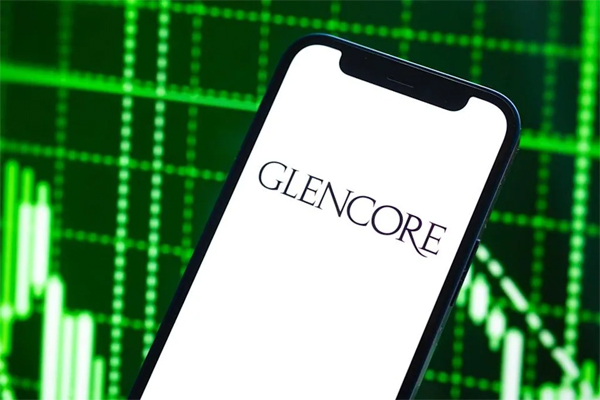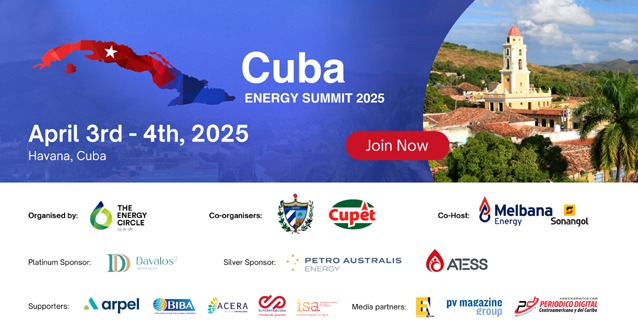
Greg Farrell and Bob Van Voris, Bloomberg News
NEW YORK
EnergiesNet.com 05 25 2022
Using code words for bribes like “newspapers” and “chocolates,” Glencore Plc executives got a terrific rate of return on corrupt payments in Africa and Latin America.
By paying $52 million in bribes to officials in Nigeria from 2007 to 2018, the Swiss commodities firm earned profits of $124 million, according to the US Justice Department. In Cameroon, the return was even better, as $21 million in bribes generated $67 million in profits. For the company’s work in the Ivory Coast, a $4 million investment led to $30 million in profits.
Read More: Glencore Pleads Guilty to Decade of Bribery and Manipulation
The company also paid off officials in Brazil and Venezuela, in order to win favorable contracts with Petrobras and get special treatment from PDVSA, prosecutors said.
They were great investments, until the company got caught. Units of the Swiss commodities giant on Tuesday entered guilty pleas and agreed to pay about $1.5 billion to settle US, UK and Brazilian bribery and market manipulation probes that have hung over it for years.
The bribery scheme reached to the most senior ranks of the company, according to a court filing. But while US Attorney General Merrick Garland has prioritized holding individuals responsible for corporate fraud, no executives were charged in the announcement settlements.
Naturally, the company didn’t account for the payments as bribes. Instead, employees at the Glencore UK units “used coded language to conceal their discussion of bribe payments,” referring to them as “newspapers” or “journals” or “pages,” according to a court filing.
In emails exchanged around November 2018, an unidentified trader told a West Africa agent that a $90,000 payment needed to be made to cover newspaper reading material, which was code for paying bribes to falsely undervalue fuel oil for the benefit of Glencore, according the court document. The agent replied that “the newspapers will be delivered” by himself personally, the document said.
In a separate filing, the Commodities Futures Trading Commission cited similar attempts to disguise the nature of the payments that Glencore was making.
The corrupt conduct was widespread within Glencore’s oil business, and supervisors were aware of and at times directly involved in the corruption.
Payments were sometimes concealed in large bundles of cash or through third-party companies, with deceptive invoices to Glencore for euphemistic costs or services such as “advance payment,” “marketing services” or “commission,” according to the CFTC filing.
Some of the payments apparently went to waste.
In 2011, prosecutors said, an executive who headed up one of Glencore’s main subsidiaries met with the company’s West African intermediary and a Nigerian government official in London to discuss a swap agreement that would allow Glencore to buy refined crude from Nigeria.
Glencore’s representative, identified only as “Executive 1,” agreed to pay $14 million through the West African intermediary, knowing that some of those funds would be used as a bribe, prosecutors said.
After the company wired the money in March 2011, the West African agent withdrew $1 million and gave it to the Nigerian official as a bribe, according to the filing. But when Glencore decided not to pursue the initiative, its intermediary only sent back $8 million of the original $14 million.
Not all of the bribes were for securing oil. In November 2010, a medical services company filed a $16 million breach of contract lawsuit against a Glencore subsidiary in the Democratic Republic of the Congo.
The plaintiffs appeared to have a strong case, and Glencore’s local agent, after consulting with a government official, emailed a Glencore executive with a warning: “Without help, we’ll be screwed big time, I believe. We need political pressure.”
The agent said that with enough “ammunition,” he could swing things in the company’s favor. For “ammunition,” Glencore wired $500,000 to the agent. Armed with the funds, the agent was able to secure a meeting between himself, the government official and the judge in the case. He then reported that “everything was under control.” Sure enough, in January 2011 the judge in the case decided in favor of the Glencore subsidiary, swatting away the threat of a $16 million loss.
Separately, Glencore pleaded guilty in Connecticut to conspiring to manipulate an oil price benchmark that allowed it to reduce costs and boost profits artificially.
The firm admitted that from 2011 to 2019 employees were directed to made bids and offers during a daily trading window that S&P Global Platts used to set the rates, which were then used to price private transactions.
Emilio Heredia, a former Glencore trader in San Francisco, pleaded guilty to conspiracy last year and agreed to cooperate with prosecutors.
Glencore employees also were told to “talk the market” up or down to Platts reporters, who used the “color” in their market commentary. On one day in October 2014, Heredia texted a Glencore marketer “make sure you start talking the mkt down” for Los Angeles Bunker Fuel at a time when Glencore was buying from an unidentified trading firm.
Later, a Platts reporter texted the marketer, “Hearing anything out of LA?”
The market for the fuel was “still super weak… minimal bunker demand and very high supply,” replied the marketer, whose comments were then quoted in Platts’s market commentary at the end of the day.
The moves pushed the price down from $515 per metric ton to $471.50 in one day and helped Glencore to make $2.1 million in inflated proceeds from the transaction.
In total, Glencore illegally made $85 million from manipulating the market for fuel oil at the Los Angeles port, $23 million in Houston and split an additional $70 million in rigged proceeds with an unidentified state-owned oil company that was its partner in a joint venture.
Glencore agreed to a fine of $341,221,682 and forfeiture of $144,417,203. A plea agreement with the government requires Glencore to cooperate with their investigation. The agreement doesn’t protect any individuals from prosecution “regardless of their affiliation” with Glencore.
bloomberg.com 05 24 2022












